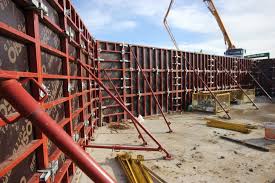Jul . 29, 2024 20:30 Back to list
Innovative Solutions in Modular Formwork Systems for Modern Concrete Construction Companies
Modular Formwork for Concrete Companies Revolutionizing Construction
In the ever-evolving world of construction, efficiency, sustainability, and innovation are key factors that influence the success of any project. One technology that has emerged as a game-changer in the concrete industry is modular formwork. By providing a flexible and reusable framework for concrete pouring, modular formwork not only enhances productivity but also addresses the environmental concerns inherent in traditional construction methods.
What is Modular Formwork?
Modular formwork refers to a system of reusable molds made from materials like steel, aluminum, or high-density plastic that are designed to shape and hold liquid concrete until it cures. Unlike conventional wooden forms, which are often single-use and labor-intensive, modular systems can be quickly assembled, disassembled, and reused multiple times across different projects. This adaptability makes modular formwork a smart choice for concrete companies looking to optimize their processes.
Benefits of Modular Formwork
1. Time Efficiency One of the primary advantages of modular formwork is its speed of installation. Many modular systems come pre-engineered and can be assembled rapidly onsite, reducing the overall time required to complete a project. This is particularly beneficial in fast-paced construction environments where meeting strict deadlines is vital.
2. Cost-Effectiveness While the upfront investment in modular formwork may be higher compared to traditional systems, the long-term savings can be significant. Because they are reusable, the cost per project decreases as the same modules can be utilized multiple times. Furthermore, reduced labor costs associated with faster assembly and disassembly contribute to overall project savings.
modular formwork for concrete companies

3. Improved Quality and Safety Modular formwork systems are designed to precise specifications, ensuring uniformity and accuracy in the concrete structures. This leads to higher quality results with fewer defects, which can save companies from costly repairs or redesigns. Additionally, many modular systems incorporate safety features, reducing on-site accidents related to formwork assembly.
4. Sustainability As the construction industry increasingly prioritizes sustainability, modular formwork aligns perfectly with eco-friendly practices. The ability to reuse formwork multiple times minimizes waste and the need for new materials. Moreover, many manufacturers are now producing formwork using recycled or sustainable materials, further reducing the ecological footprint of construction projects.
5. Versatility Modular formwork systems are adaptable and can be used for a wide variety of concrete structures, including walls, slabs, columns, and foundations. This versatility allows concrete companies to tackle diverse projects—from residential buildings to large commercial developments—using the same formwork systems.
Challenges and Considerations
Despite the numerous advantages, there are challenges associated with the adoption of modular formwork. Companies must invest time and resources into training their workforce to effectively utilize these systems. Additionally, careful planning and design are essential to ensure that the modular forms can accommodate the specific requirements of each unique project.
Conclusion
As the construction industry continues to advance, modular formwork offers a compelling solution for concrete companies looking to enhance their efficiency, reduce costs, and promote sustainability. By embracing this innovative technology, companies can not only improve their operational performance but also contribute to a greener future in construction. In a world where every advantage counts, modular formwork stands out as a pivotal tool for modern concrete companies striving to stay competitive and responsible.
-
High-Quality U Head Jack Scaffolding – Reliable Scaffolding Jack Head Manufacturer & Factory
NewsJul.08,2025
-
High-Quality I Beam H20 Leading Timber Beam H20 Material Factory, Exporters & Manufacturers
NewsJul.08,2025
-
High-Quality Powder Coating Steel Formwork - Durable & Corrosion Resistant Solutions
NewsJul.07,2025
-
Inclined Column Formwork Supplier – Durable & Precise Solutions for Unique Structures
NewsJul.07,2025
-
High-Quality Water Stop Solutions Trusted Water Stop Company & Suppliers
NewsJul.07,2025
-
High-Quality Formwork Material Supplier Reliable Manufacturer & Factory Solutions
NewsJul.06,2025